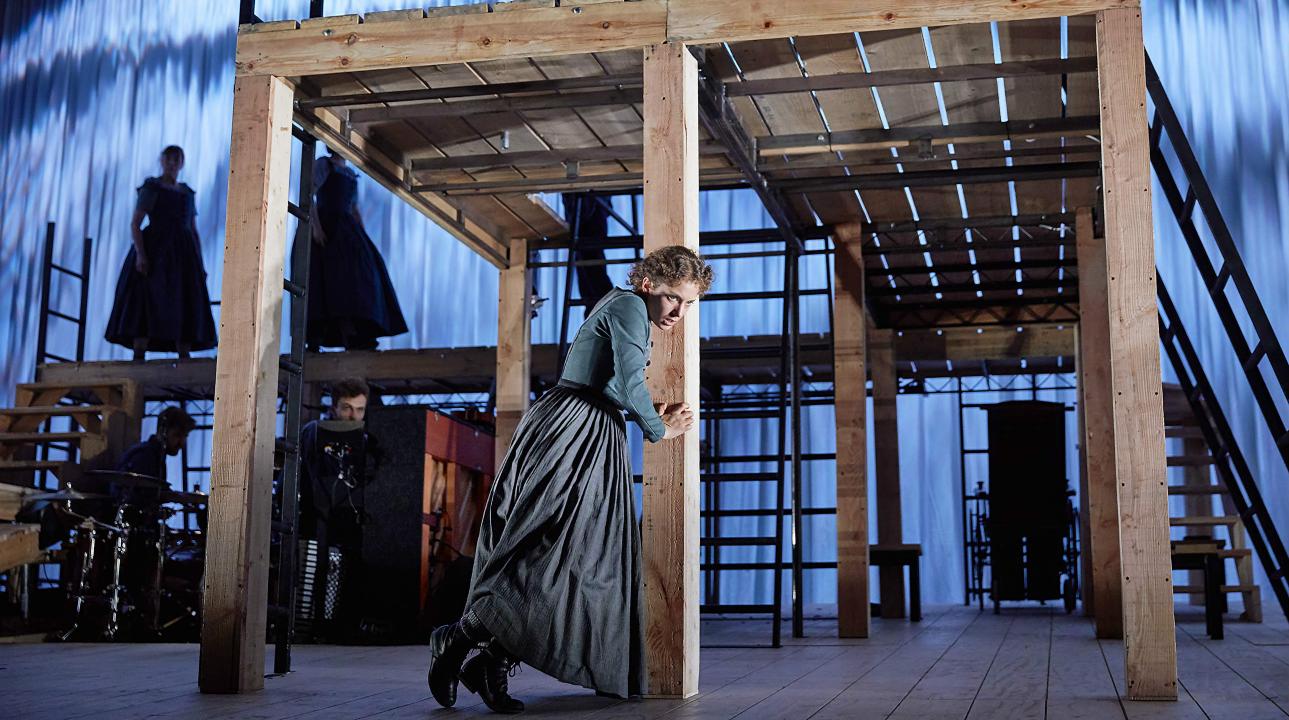Charlie Collett reviews Sally Cookson’s Jane Eyre, which has returned to the stage following its successful tour with the National Theatre in 2015.
Arriving at the REP theatre with my mum – who has studied Charlotte Brontë’s novel several times and owns no less than eight copies – I had no idea how Jane Eyre would work as a play adaptation. However, my curiosity was quickly awakened; an abrupt silence fell upon the audience as we watched the actors walk on stage, without so much as a dimming of the lights. It was a simplistic start to an incredibly quirky performance.
It was immediately apparent that music was crucial to the story. The live band added character to the stage, as the musicians weaved between creating music and acting small sequences, giving a real sense of community between the roles on stage.

But the true star of the music, and of the entire show, was Bertha (played by Melanie Marshall). When we are thrust with Jane – Nadia Clifford – into the red room, Marshall’s melancholy vocals expand the room into a never-ending space, where music conjures up unseen spirits and creatures. In Brontë’s novel, Bertha is as a beast-like creature that roams the attic at Thornfield, characterized only by her violence and sinister laugh. Cookson, however, brings this character to life, as Bertha continuously haunts the stage with both physical presence and sound.
Wooden frames were simplistic but effective props on stage, forcing the energetic movement of the play to grind to a halt, as Jane stares into the squares held in front of her face. ‘Do something’ – the voices around her chant – as she raises her arms and forces the frames away. At the end of the play, Jane returns to Rochester, but the squares remain littered around the stage, as Jane fails to break free of convention. In the official programme for Jane Eyre, Cookson claims that Jane feels she must ‘be fed, not just physically but emotionally, spiritually and intellectually’ – and Clifford’s rejection of the wooden frames surrounding her face certainly reflect this need for expansion, rather than the restriction of her employment and gender.
‘Marshall’s melancholy vocals expand the room into a never-ending space, where music conjures up unseen spirits and creatures.’
My favourite part of the play has to be the breath-taking cover of Gnarls Barkley’s ‘Crazy’. ‘I think you’re crazy, just like me’, sings Marshall at the end of the play, as Bertha laughs at the romantic reunion of Jane and Rochester. Whoever would have thought that a 2006 top hit would fit so perfectly into a 19th century tale?
Sally Cookson’s production is an engaging twist on the novel, complete with a grown man pretending to be Pilot – Rochester’s dog – and a hasty ‘piss break’ in the journey to Lowood. Although proving too modern an adaptation for some – the ladies in front of me hastily left during the interval – I was left haunted by Jane Eyre and am yet to experience another piece of theatre so brilliantly and unapologetically bizarre.
Jane Eyre continues at Birmingham REP until 16th September, it will then transfer to Hull New Theatre from 18th to 23rd of September and will be returning to the National Theatre from 26th September to 21st October.
Charlie Collett
(Image courtesy of National Theatre)

